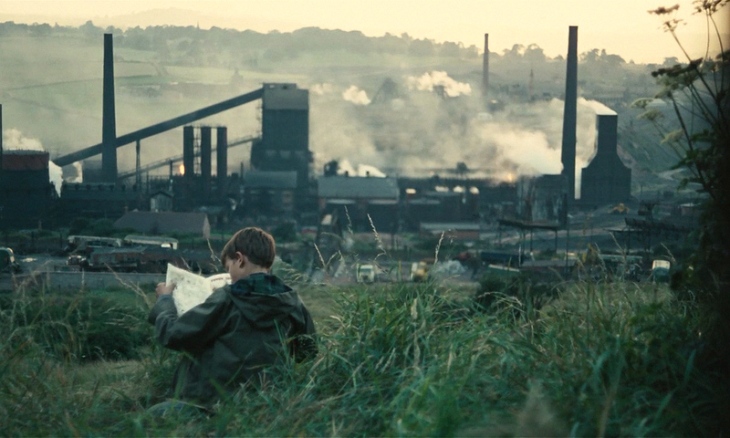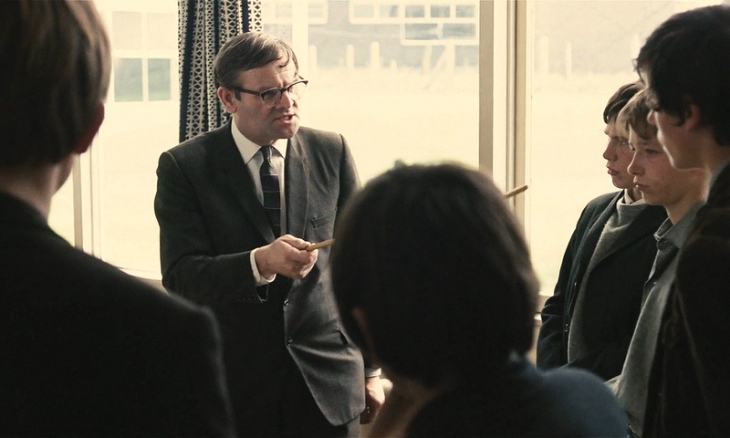I can remember attending a school trip where we saw a falcon-handler. I will not call him a falconer, as I remember little about him. He got one or two of the children to lie on the floor with a piece of meat on their back, and let the falcon swoop down and collect it, something the bird could skilfully accomplish without even touching the child.
One of the more puzzling moments of the visit was when he suddenly delivered a vitriolic attack on a book about a kestrel that was made into a film, neither of which I had heard. He hated both book and film equally. I assume his main complaint was that the story presented an unrealistic and uninformed view of how to raise a kestrel.
Was there another reason behind his complaint, I wonder? I do not wish to malign a man who may never read this review, but is it possible that he objected on the grounds of snobbery? He was a posh man, who disliked a vulgar book with a left-wing political bias, in which a working-class boy has the audacity to raise a bird of prey, a privilege normally reserved for the upper classes. Indeed the book’s title is A Kestrel for a Knave, an allusion to a medieval poem which suggested that only a knave was legally allowed to keep a kestrel.
A Kestrel for a Knave was a book that has often formed part of the English syllabus in schools, and I am impressed that a book with such subject matter should acquire this honoured status. Ken Loach’s film version, Kes is also considered suitable for older children, and doubtless many schoolchildren who read the book were also made to watch the film.
It seems like a different age when political discussion was less infantilised, and it was possible for a book written by a socialist to be part of the mainstream education agenda, and indeed a work that criticises teaching in schools, and promotes reading and independent learning.
People used to be more open-minded though. Another memory I have is of my English teacher showing us a model answer to a test which he thought was excellent. This teacher was an old-school authoritarian, and yet he casually commented on the socialist argument made by the pupil, and praised it because the argument was good, whatever his own personal opinions.
I have not read Hines’ book myself, and this review is about Ken Loach’s 1969 film version. Imagine this scenario – a Disney adaptation in which Billy Casper (David Bradley) lives happily ever after with his kestrel. Disney did want to make such a movie, but Hines refused to compromise. American distributors of the film also wanted a happier finish with Billy getting a job in a zoo, but thankfully we were spared seeing the film ending on a false note.

It fell instead to Ken Loach, a moviemaker of great integrity, to take the reins, and to begin a long collaboration with Barry Hines, in which he adapted the writer’s scripts for movie or television. This led to many of Loach’s early films being set in Yorkshire. Later Loach would collaborate with scriptwriter Paul Laverty, and the focus would move towards Glasgow.
Kes was Ken Loach’s second feature film, and the one that made his name. It is still one of his most popular movies, but Loach’s emphasis on authenticity has often made the widespread circulation of his movies difficult. For Kes, Loach kept the action in Barnsley, the home town of Barry Hines. The location is not mentioned in the film, but the Yorkshire accents were real enough, and many of the actors came from around the area.
For this reason, American audiences struggled with the accents and dialect, and it is not uncommon for the film to be shown in America with subtitles. It was to be two years before the film was finally released over there. The dialogue is genuine in another way – the use of swearing and coarse language.
Ken Loach began his career as a director for television, and perhaps this accounts for his emphasis on a more naturalistic style of moviemaking. His films have a grainy look. Some scenes are not well-lit. He employs jerky, hand-held cameras. Kes was filmed in sequence. The movie was made on a low budget, and the settings are suitably dreary.
With the exception of Colin Welland and a few others, the cast were mostly not professional actors. Even Brian Glover, now a well-known figure from British television, was working as a teacher at the time. The headmaster that we see in the film was a real headmaster. Welland spent a week teaching in a school to make his performance seem more credible. The children really were caned by the headteacher, and paid 50p extra for their trouble.

The subject matter of Kes, as with all of Loach’s later films, is ordinary people. He deals in the unglamorous and mundane lives of working-class folk – working down the pit, drinking in clubs with live music performers, reading Desperate Dan comic strips, children with paper rounds, fish and chips, chatting with the milkman, or betting on the horses at the bookie’s.
At his worst, Loach is sometimes overly reverential towards poor people, but thankfully this fault cannot be found in Kes. The community in which Billy Casper moves is a harsh and surly one. His mother is indifferent to his enthusiasms, and his older brother Jud (Freddie Fletcher) enjoys bullying him.
Loach is on record as saying that he regretted making Jud such a brute, and that he should have spent more time portraying the older brother’s hardships working down the mine. Personally I am glad that he did not. It is not necessary that every working-class figure should be a fallen angel.
Billy is no victim however. He can stand up for himself. He moves through this world with acceptance, and with a wish to better himself. He is not above performing petty acts of theft. He does not wish to follow his brother down the pit, as he recognises that the work is sheer drudgery. At this time the miners were the lowest paid workers in any developed country.
Nonetheless it seems likely that Billy will end up working down the pit, whether he wants to or not, as this is the main source of employment in the area. In one scene, Billy meets with a careers advisor in the school, who tries asking him what job he would like to do for a living. The young boy is tongue-tied and anxious to leave quickly, because he has no idea what he would like to do, and few prospects of finding a job that would fulfil him anyway.

The boy does have one interest that will broaden his horizons. He loves watching kestrels, and he wishes to rear a kestrel chick of his own and train it. To do this requires stealing one from a nest, behaviour that many viewers would not approve of today. Attitudes towards the animal kingdom were then very different from now. When Billy is in the presence of a kestrel, the music takes on a softer note, to reflect this soothing moment of escape from the privation of living in a poor mining town.
Billy’s love for Kes, the kestrel that he takes home, will help to take his mind to new places. This is a boy who did not even know where to find his local library, and yet he tries to join it so that he can borrow a book on kestrel training. When he is unable to become a member of the library, he steals a book. He has a dream, and this encourages him to learn.
His new pastime even earns Billy some rare praise at school. He is asked to speak to the class about a subject of interest, and he is pushed into discussing Kes. His teacher Mr Farthing (Colin Welland) is genuinely interested in Billy’s words, and even agrees to visit Billy and watch him as he trains Kes.
Mr Farthing is something of a rarity here, a teacher who has some degree of kindness and interest in seeing one of his pupils develop. He is not a soft man. He speaks in tough language to the class, and he is not above rough-handling a bully. Nonetheless he has warm and encouraging words for Billy, and a wish to see him grow.

In this he is exceptional. On the whole the film’s portrayal of the school system is a negative one. Here education is not intended to educate or improve the children, but to subdue them, perhaps to make them into obedient workers later.
The school is a drab building, and yet an improvement on the older school it replaced, we are told. Actually I remember many of the same features from my own upbringing in northern Britain – the petty and unfair rules, the sadistic Physical Education teachers, the Lord’s Prayer in assembly, and so on.
This is a world in which pupils are disciplined for coughing, and caned for smoking, and where teachers do not care whether the pupils are innocent or not. The sadistic PE teacher is Mr Sugden (Brian Glover), a man who hectors Billy for having no football shirt, and who turns on the cold water in the shower out of pure spite.
We watch a school football match which plays out as a travesty of a real game, especially since none of these boys have much prospect of becoming a major footballer. The boys are allocated the teams of Manchester United and Tottenham Hotspur, and a scoreboard appears at the bottom of the screen. Meanwhile Mr Sugden runs around the field, cuffing boys and bending the rules, because this competitive little man wants his side to win.

Billy’s predicament is that he knows that the rest of his life will be like this. Asked why he does not wish to go work when he does not like school, he replies, “I don’t (like school), but it dun’t mean to say I’ll like work”. He adds, “Still, I’ll get paid for not likin’ it.” His position is stark, and the ending of the movie offers little hope that he can escape his fate.
Nonetheless his position touches the heart, and shows that it is possible to make affecting drama about ordinary situations and poor people without reducing them to figures of comedy or pity. Kes helped to establish Ken Loach as the poet for the ordinary man, and he has consolidated that position ever since.

2 thoughts on “Kes (1969)”